Review: BEST OF ENEMIES at the Noel Coward Theatre
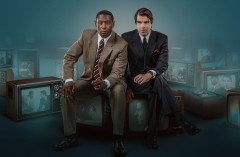 “There are two things I shall no longer be turning down,” announces Gore Vidal, played by a sardonic Zachary Quinto in Best of Enemies, “Sex, and television appearances".
“There are two things I shall no longer be turning down,” announces Gore Vidal, played by a sardonic Zachary Quinto in Best of Enemies, “Sex, and television appearances".
It’s the late 1960s and TV is a new and exciting business in the USA. News needn’t just be “What happened?” any longer, it can be “What do you think?”. That’s what the ABC executives reckon at least, worried that their network is becoming the least-watched channel as they enter an election year.
This doesn't feel like just any other election, either- the Vietnam War is raging, Civil Rights campaigns are happening, and LGBTQ people like Vidalare living more openly. In the first half-hour of Best of Enemies, Andy Warhol is shot and MLK and Bobby Kennedy are assassinated. Change, everybody feels, is underway.
ABC enlist Vidal- a cool, smarmy author who fixates on the Kennedys and parties with Warhol- to argue for the Democrats/liberals. On the Republican/conservative side is William Buckley (David Harewood). He's ambitious, principled and a devoted husband to his wife Patricia (Clare Foster, making the most of one of the few female roles in the play). Both men are involved with, if not directly in, politics. They’re also both slick, smart and articulate, and ABC reckon their similarities and differences will make perfect news-adjacent viewing. James Graham's play follows Vidal and William Buckley’s series of televised debates in response to party conference season in the Summer of '68. That’s pretty much the extent of the story- Best Of Enemies doesn’t need more plot because it’s a play about conversation. Throughout Vidal and Buckley’s debates, and the scenes of their preparation and reaction, Graham explores war, identity, race, media and both sides of the political spectrum. And, as Vidal and Buckley's appearances become increasingly popular and successful, the two men realise that they may be developing real political influence themselves. Is that what they want? Is this what television is for? What could it lead to? Best of Enemies doesn't need to explicitly mention Trump, Twitter or cancel culture for the audience to know that's what Graham is getting at.
Quinto is a magnetic presence who makes Vidal sympathetic while also revelling in the character’s more nasty and callous attributes. Vidal, however, is a performance himself, buried under layers of shtick. Harewood therefore has the more challenging role as the less artificial character, and gives an accomplished performance. It's exciting to see two powerful actors excel in wordy, idiosyncratic roles.
Bunny Christie's set is laid out like a TV studio, and the backdrop zooms in on close-ups of Buckley and Vidal, allowing the theatre audience to feel as if we're watching the TV. It's in ingenious marrying of media, and allows Buckley to obsessively rewind and rewatch himself as he swots up to "beat" Vidal next time. Are these two men keen to win for political reasons, or personal? Christie demonstrates the differences in Vidal and Buckley's personal lives by having them wander around the same hotel-room sets. And from gun-shots to documentary footage, the sound and lighting design keep the play dynamic.
If Best of Enemies’ cutesy title makes you suspect that Vidal and Buckley will be mates by the end, think again. They remain in firm political opposition and personal dislike. Graham's refusal to paint either as right or wrong, good or bad, is one of the play's main strengths. Best of Enemies highlights in the importance of discussion, context, and space to fully explain ideas- though Vidal and Buckley's debates don't always allow them to do so. Did they elevate political discourse, or reduce it to pernickety celebrity squabbling? The (true) events of the play's climax certainly changed television, but did they also change politics?
Not everything in Best of Enemies works. There’s little for the supporting cast to do- most actors play multiple roles, which is hard to keep a track of but ultimately unimportant. There's a few too many wink-wink jokes about theatre and TV audiences, and the interludes at Vidal's parties or the anti-war protests are eye-rolling and unnecessary. There's a small structural shift in the final twenty minutes of the play, which dips into sentimentality and sign-posting. But these are forgivable sins. In Best of Enemies, Graham has written an intriguing and intellectual work. With so many fantasy stories on London stages at the moment, it's refreshing to watch a play set in the real world, dealing with issues of race and economy. And Best of Enemies gives its lead actors plenty of dialogue and characterisation to sink their teeth into, resulting in two memorable performances.
Latest News
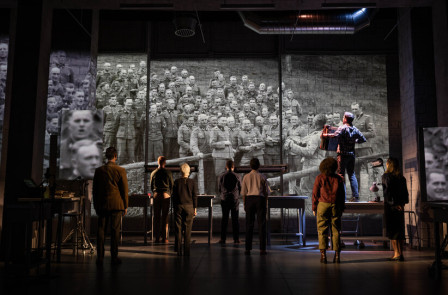
 HERE THERE ARE BLUEBERRIES at Stratford East - First look images released
5 February 2026 at 15:35
HERE THERE ARE BLUEBERRIES at Stratford East - First look images released
5 February 2026 at 15:35
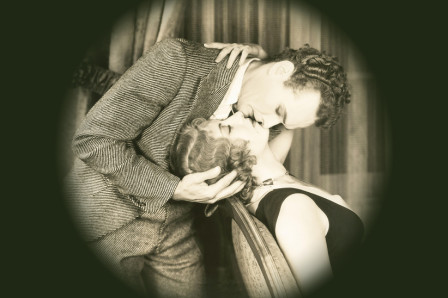
 UK premiere of STAGE KISS heading to London
5 February 2026 at 15:16
UK premiere of STAGE KISS heading to London
5 February 2026 at 15:16
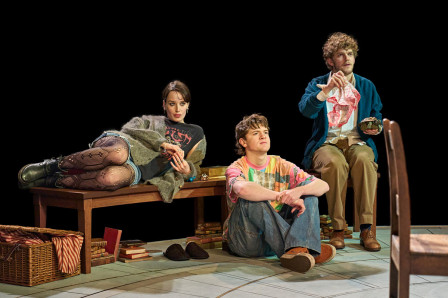
 Review: ARCADIA at Old Vic
5 February 2026 at 11:33
Review: ARCADIA at Old Vic
5 February 2026 at 11:33
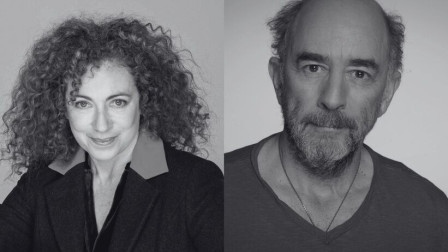
 Alex Kingston and Richard Schiff star in Michael Frayn's COPENHAGEN
5 February 2026 at 10:45
Alex Kingston and Richard Schiff star in Michael Frayn's COPENHAGEN
5 February 2026 at 10:45
